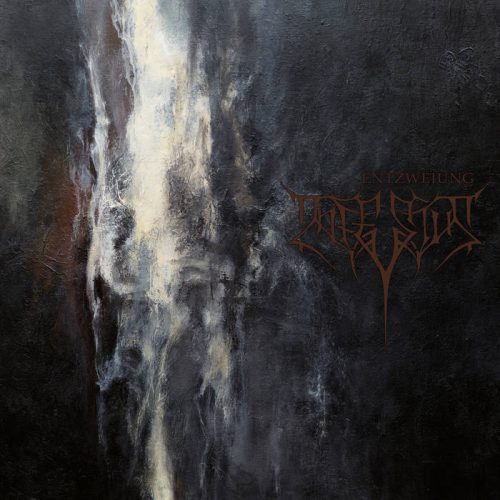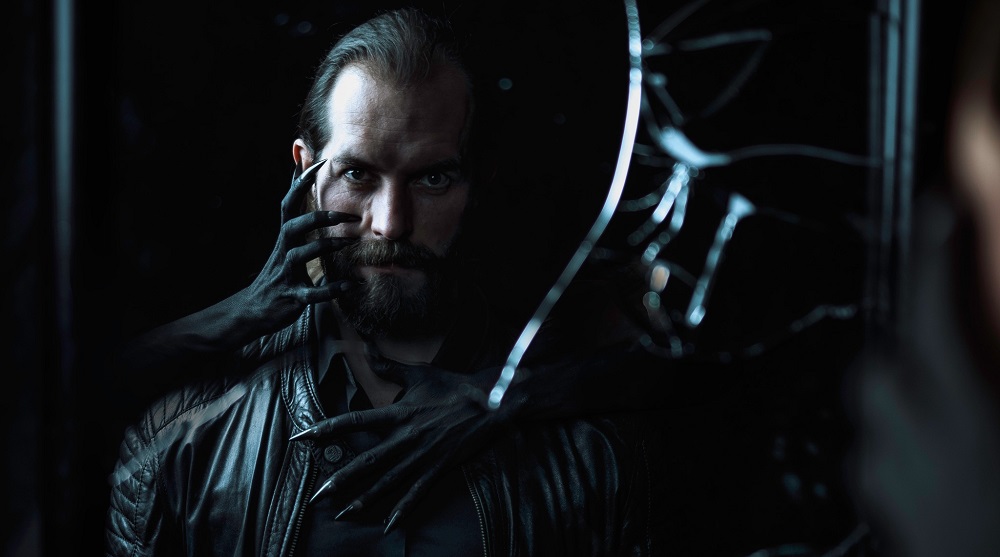
(Andy Synn dives into the darkness of the new album from Infestus, out now)
I like Black Metal. I’m pretty sure everyone around here knows that by now. But what kind of Black Metal I want to hear varies with my mood.
Sometimes I want it raw and nasty. Other times I want it dripping with orchestral excess. Heck, there’s even times when I want it so proggy and unorthodox that it barely even sounds like Black Metal at all.
But right here, right now, I want it dark, I want it moody, and I want it so sharp that you’re in danger of losing a finger every time you push “play”.
So it’s a good thing a new Infestus album dropped last week.

As a long-time fan of the band (aka the solo-project of Andreas von der Heidt) I am, by my own admission, clearly predisposed to love Entzweiung no matter what.
After all, I consider 2014’s The Reflecting Void to be one of the best, and most under-appreciated, Black Metal albums of the last decade (and its predecessor, 2011’s E x | I s t, isn’t far behind in my opinion).
But I’m not here to talk about why I like it… not really… I’m here to talk about why you might like it, especially if you’re a fan of bands like Bethlehem, Beltez, and Shining.
Spewing riffs like razorblades and spitting venom like with all the uncompromising urgency of a man who knows his time on this earth is short, much of Entzweiung finds von der Heidt at the most aggressive he’s ever been, with the seething guitars and scorching blastbeats propelling (initially, at least) songs like “Dead Inside” and “Quell der Entzweiung” reaching almost lethal levels of intensity.
But the album’s biggest strength, to my ears at least, is the way it fully embraces its more reflective and introspective moments – expressing its inner darkness through poignant passages of pensive piano and brooding acoustic guitar (such as the mournful mid-section of “Fuga Nocturna” and the forlorn finale of the aforementioned “Quell der Entzweiung”) as much as through scything distortion and spiralling leads – to provide the necessary creative, and emotive, contrasts which these songs require to fulfil their full potential.
If there’s one criticism to be made (not a major one, but certainly worth mentioning from my perspective) it’s that “Vom Dunkel verschlungen” definitely feels like the natural climax of the album (building as it does from such bleakly beautiful beginnings to such a commanding and cathartic crescendo) and – as a result – both sombre instrumental “Solitude” and epic, eight-and-a-half minute closer “Dance of Uncreation” can’t help but feel slightly anticlimactic in comparison.
It’s a relatively small issue though (more a question of sequencing than substance, when all is said and done) and one that’s unlikely to be a major deal-breaker, as the album’s major strengths – its undeniable, almost paradoxical, vitality… its evocative, light-and-shade songwriting… its immersive emotional depths – should be obvious to anyone and everyone willing to approach it with the right sort of aufgeschlossenheit.
